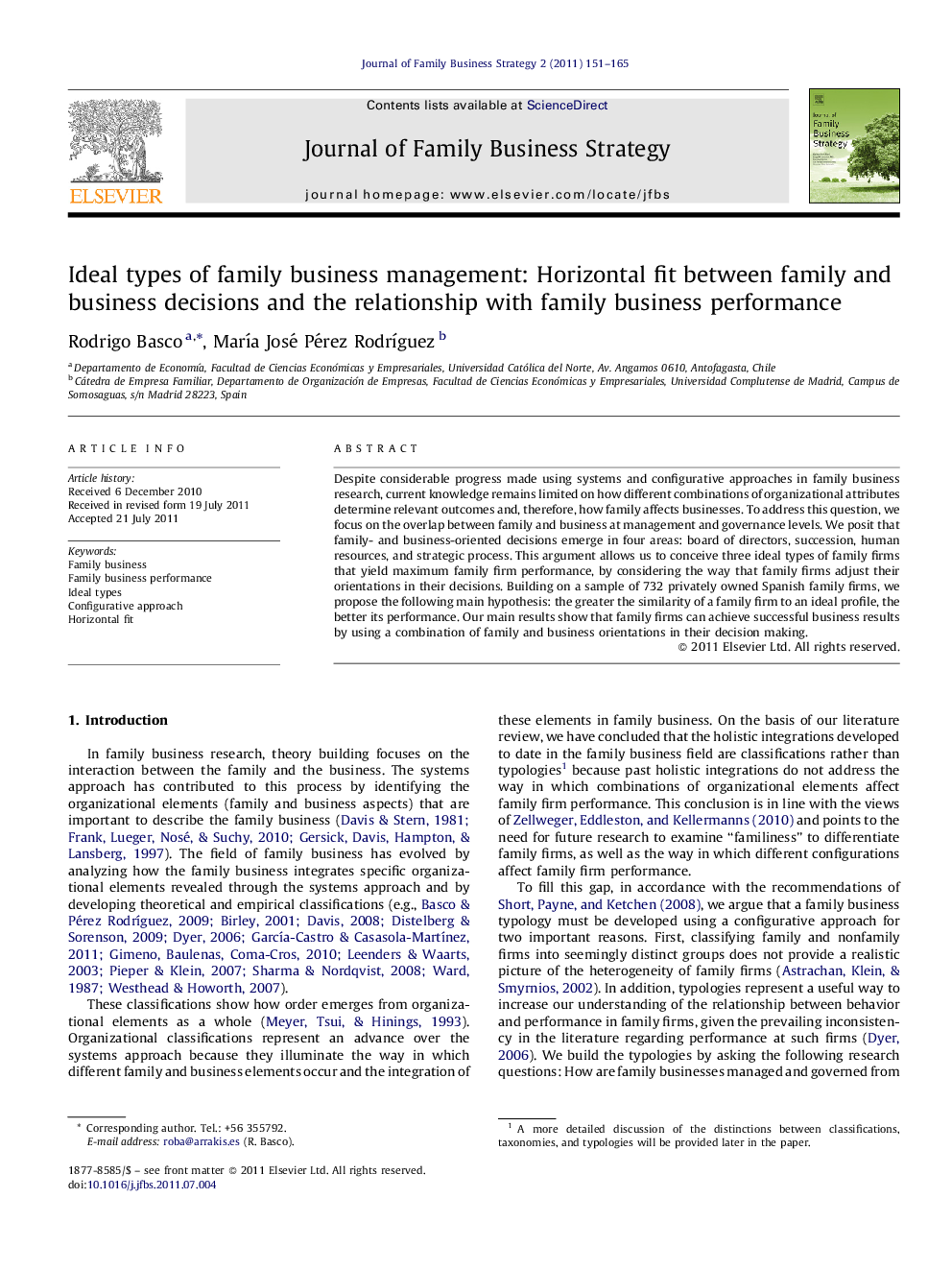| Article ID | Journal | Published Year | Pages | File Type |
|---|---|---|---|---|
| 1020174 | Journal of Family Business Strategy | 2011 | 15 Pages |
Despite considerable progress made using systems and configurative approaches in family business research, current knowledge remains limited on how different combinations of organizational attributes determine relevant outcomes and, therefore, how family affects businesses. To address this question, we focus on the overlap between family and business at management and governance levels. We posit that family- and business-oriented decisions emerge in four areas: board of directors, succession, human resources, and strategic process. This argument allows us to conceive three ideal types of family firms that yield maximum family firm performance, by considering the way that family firms adjust their orientations in their decisions. Building on a sample of 732 privately owned Spanish family firms, we propose the following main hypothesis: the greater the similarity of a family firm to an ideal profile, the better its performance. Our main results show that family firms can achieve successful business results by using a combination of family and business orientations in their decision making.
► Research questions: How are family businesses managed and governed from the standpoint of the family-business relationship? And, how do different combinations of management and governance affect family firm performance? ► Our typological model of family business is inspired by essence perspective which asserts that the family's influence on the firm creates certain specific ways of acting. ► We used an empirical method to analyze the proposed typological model. ► We found that business performance can be achieved by different ways, i.e. different horizontal fits.
